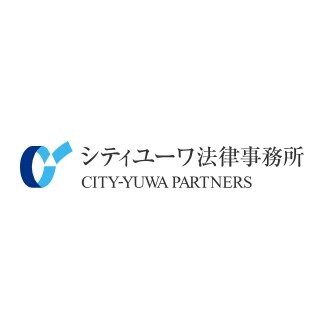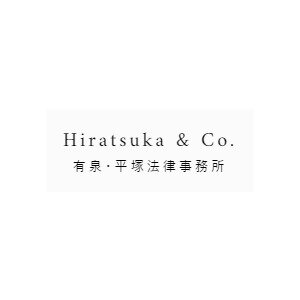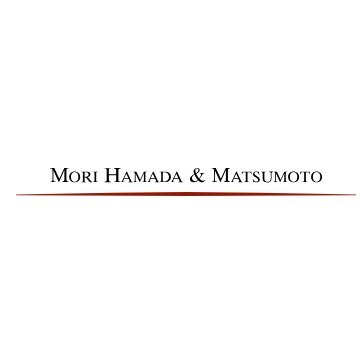Best ADR Mediation & Arbitration Lawyers in Chiyoda-ku
Share your needs with us, get contacted by law firms.
Free. Takes 2 min.
List of the best lawyers in Chiyoda-ku, Japan
About ADR Mediation & Arbitration Law in Chiyoda-ku, Japan
Alternative Dispute Resolution (ADR) methods such as mediation and arbitration have become essential tools for resolving disputes in Chiyoda-ku, Japan. These methods provide efficient and private alternatives to traditional court proceedings and have been widely adopted by individuals and businesses seeking faster and more cost-effective resolution of conflicts. Mediation involves a neutral third party assisting disputing parties in reaching a consensus, while arbitration involves a neutral arbitrator making a binding decision on the dispute.
Why You May Need a Lawyer
While ADR processes like mediation and arbitration are designed to be less formal than court proceedings, having legal assistance can be advantageous in several situations. A lawyer knowledgeable in ADR can help you understand the process, prepare necessary documents, and represent your interests effectively. You may need legal help if you are facing a complex commercial dispute, want to ensure that your rights are protected during arbitration, or need assistance in enforcing an arbitration award. Additionally, if there are cross-cultural or international elements involved, legal guidance can be crucial to navigating these complexities.
Local Laws Overview
Chiyoda-ku, being part of Tokyo, adheres to the broader legal framework governing ADR in Japan. The Arbitration Act and the Act on Promotion of Use of Alternative Dispute Resolution are key regulations that guide these processes. These laws are designed to encourage the resolution of disputes outside traditional court systems, providing legal recognition to arbitration awards and promoting mediated settlements. The Japan Commercial Arbitration Association (JCAA) is also a key institution providing arbitration services in the area.
Frequently Asked Questions
What is the difference between mediation and arbitration?
Mediation is a non-binding process where a mediator helps parties find a mutually agreed solution, while arbitration is a binding process where an arbitrator decides the outcome.
Can I choose my arbitrator or mediator?
Yes, parties generally have the option to agree on their choice of arbitrator or mediator. In some case, the chosen ADR institution might provide a list of qualified professionals.
Is an arbitration award enforceable in Chiyoda-ku?
Yes, under the Arbitration Act, arbitration awards are enforceable in Chiyoda-ku and throughout Japan, provided they meet certain legal criteria.
Can ADR be used for any type of dispute?
While ADR can be used for many types of disputes, it is most commonly employed for commercial and civil disputes. Some types of cases, like serious criminal cases, may not be suitable for ADR.
How long does an arbitration process usually take?
The time frame for arbitration can vary, but it is typically quicker than court proceedings, often taking a few months to a year depending on the complexity of the case.
Do I need a lawyer during mediation or arbitration?
While it is not mandatory to have a lawyer, having legal representation can be beneficial to ensure your interests are fully represented and protected.
What are the costs associated with mediation or arbitration?
The costs vary depending on the complexity of the case, the fees of the mediators or arbitrators, and the ADR institution's administrative fees, often less than traditional litigation.
Can mediation or arbitration decisions be appealed?
Mediation outcomes are generally not appealable since they are agreements by the parties. Arbitration decisions, in principle, are final and binding, though there may be limited grounds for appeal under certain circumstances.
How confidential is the ADR process?
One of the main advantages of ADR is confidentiality. Both mediation and arbitration sessions are typically private, and any outcomes are not part of the public record.
What should I do if the other party breaches the mediation or arbitration agreement?
If a party breaches an ADR outcome, legal steps can be taken to enforce it. An arbitration award can be enforced by court order if necessary.
Additional Resources
For further assistance, consider reaching out to organizations such as the Japan Commercial Arbitration Association (JCAA) or the Japan Federation of Bar Associations. They provide valuable resources and guidance on ADR processes. The local Chiyoda Bar Association can also provide referrals to qualified lawyers specializing in ADR.
Next Steps
If you need legal assistance in ADR mediation and arbitration, begin by consulting a lawyer specializing in this field. Gather all relevant documents and information regarding your dispute, and be prepared to discuss your objectives for pursuing ADR. Legal professionals in Chiyoda-ku can guide you through the process and help achieve a favorable outcome.
Lawzana helps you find the best lawyers and law firms in Chiyoda-ku through a curated and pre-screened list of qualified legal professionals. Our platform offers rankings and detailed profiles of attorneys and law firms, allowing you to compare based on practice areas, including ADR Mediation & Arbitration , experience, and client feedback.
Each profile includes a description of the firm's areas of practice, client reviews, team members and partners, year of establishment, spoken languages, office locations, contact information, social media presence, and any published articles or resources. Most firms on our platform speak English and are experienced in both local and international legal matters.
Get a quote from top-rated law firms in Chiyoda-ku, Japan — quickly, securely, and without unnecessary hassle.
Disclaimer:
The information provided on this page is for general informational purposes only and does not constitute legal advice. While we strive to ensure the accuracy and relevance of the content, legal information may change over time, and interpretations of the law can vary. You should always consult with a qualified legal professional for advice specific to your situation.
We disclaim all liability for actions taken or not taken based on the content of this page. If you believe any information is incorrect or outdated, please contact us, and we will review and update it where appropriate.











